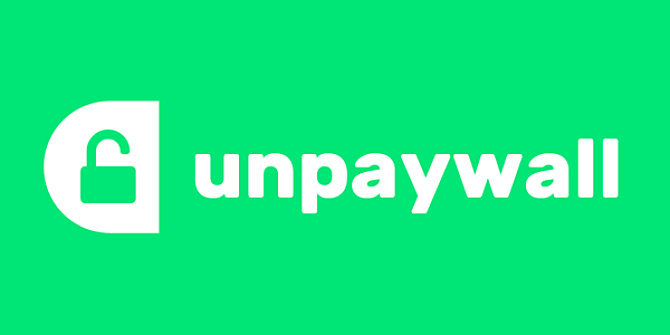Unpaywall plug-in is compatible with Chrome and Firefox web browsers and, according to Futurism, scans more than 90 million open access articles with Digital Object Identifiers (DOIs). It is funded by the National Science Foundation and the Alfred P. Sloan Foundation.
Unpaywall assigns a lock with different colors to what it discovers. If the lock on the right side of the screen is green, the full text of an article is accessible. Otherwise, it shows gray lock- means the article is still locked behind a paywall.
Most of the times (50 to 85%) the plug-in enables users to get what they are looking for for free. However, this can only be verified by independent researchers.
The Weaknesses
This plugin has some weaknesses. For instance, it does not tell if the article is behind the paywall or not while it is still in the list of items displayed by search engines; for example, in the Google Scholar search results. You have to click the article (navigate to the publishing journals’ landing page) to see either the green or the gray lock. Moreover, in many cases what Unpaywall identifies as open access article with the green lock is already, in most of the cases, shown under Google Scholar search results as open articles by indicating the existence of PDF files. Furthermore, Impactstory does not provide a possibility to directly search its database to discover all open access articles readily available for download. It depends on results from other search engines.
Moreover, in most of the cases, Unpaywall shows results from Gold open access (published by paying article processing charges) and green open access (uploaded by authors). Articles which are not under both categories cannot be accessed through Unpaywall. It cannot give access to, for instance, papers under embargo period which typically last up to one year. Most of what are available through Unpaywall are pre-prints. Though it is illegal, it is Sci-Hub that truly tears paywall down.
There are a lot in common between Unpaywall and OA Button, which is already in existence since 2013. Nonetheless, there are other distinct not for profit organizations such as Oalibrary.org and Oalib.com offering direct access to millions of open access articles.
The original post was published in UA-Foundation. Read it here and find more Open Access stories.
Sources:
Chronicle – How a Browser Extension Could Shake Up Academic Publishing.
Futurism – A New Browser Plug-In Lets You Access Millions of Scientific Papers For Free





